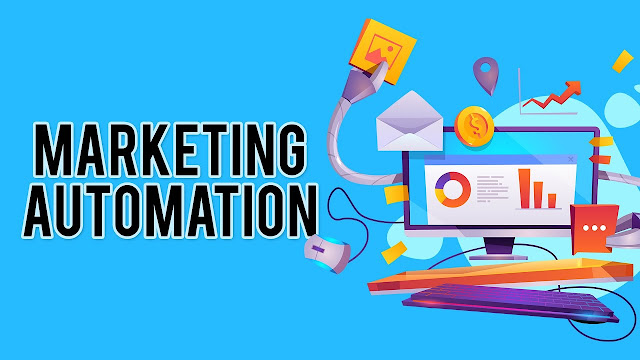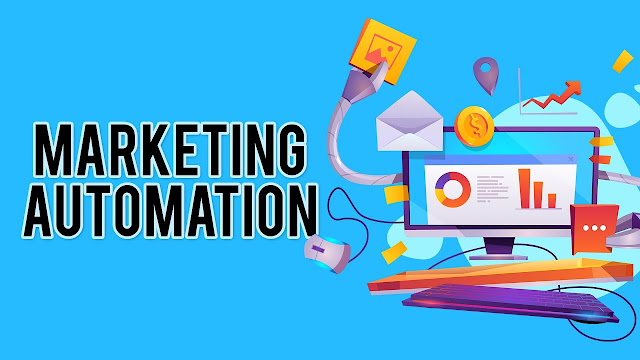
The Power of Marketing Automation Software: Why Your Business Needs It
What is Marketing Automation Software?
Marketing Automation Software is a technology platform designed to automate, streamline, and measure marketing tasks and workflows. This includes email marketing, social media posting, lead generation, customer segmentation, and campaign management. The software enables businesses to deliver targeted messages to the right audience at the right time, improving the efficiency and effectiveness of marketing efforts.
Key Features of Marketing Automation Software
- Email Marketing Automation
- Explanation: Automate the creation, scheduling, and sending of email campaigns based on user behavior, preferences, and engagement.
- Benefits: Saves time, improves engagement, and increases ROI by sending personalized and timely emails.
- Examples: Drip campaigns, automated follow-up emails, and personalized product recommendations.
- Lead Scoring and Management
- Explanation: Automatically score leads based on their interactions with your brand, helping you prioritize the most promising prospects.
- Benefits: Focuses sales efforts on high-quality leads, increases conversion rates, and shortens sales cycles.
- Examples: Assigning scores based on email opens, website visits, and content downloads.
- Customer Segmentation
- Explanation: Automatically segment your audience based on demographics, behaviors, and interactions to deliver more personalized content.
- Benefits: Enhances the relevance of marketing messages, leading to higher engagement and conversion rates.
- Examples: Creating segments for new leads, returning customers, or high-value clients.
- Social Media Automation
- Explanation: Schedule and post content on social media platforms automatically, and monitor engagement metrics in real-time.
- Benefits: Maintains a consistent social media presence, saves time, and increases audience engagement.
- Examples: Automating posts for different time zones, scheduling campaigns, and responding to comments or messages.
- Analytics and Reporting
- Explanation: Track and measure the performance of your marketing campaigns with detailed analytics and reports.
- Benefits: Provides insights into what’s working and what’s not, allowing for data-driven decisions to optimize marketing strategies.
- Examples: Monitoring email open rates, click-through rates, conversion rates, and ROI.
- Campaign Management
- Explanation: Plan, execute, and manage marketing campaigns across multiple channels from a single platform.
- Benefits: Ensures consistency across campaigns, simplifies complex marketing tasks, and improves coordination among teams.
- Examples: Coordinating multi-channel campaigns that include email, social media, and paid advertising.
- A/B Testing
- Explanation: Test different versions of your marketing content to see which performs better with your audience.
- Benefits: Optimizes marketing efforts by identifying the most effective strategies, increasing engagement and conversions.
- Examples: Testing email subject lines, call-to-action buttons, or landing page designs.
Why Your Business Should Use Marketing Automation Software
- Saves Time and Increases Efficiency
- Explanation: One of the most significant advantages of marketing automation is the time savings it offers. Automating repetitive tasks, such as sending emails, posting on social media, and managing leads, frees up your marketing team to focus on more strategic activities.
- Benefits: By reducing manual work, your team can dedicate more time to creativity, strategy, and analyzing results, ultimately leading to better outcomes.
- SEO Focus: Time-saving benefits, increased marketing efficiency.
- Delivers Personalized Customer Experiences
- Explanation: Today’s consumers expect personalized experiences that cater to their specific needs and preferences. Marketing automation allows you to deliver personalized content at scale, tailoring your messages based on individual customer behavior and data.
- Benefits: Personalized marketing campaigns are more likely to engage customers, build loyalty, and drive conversions, leading to higher customer satisfaction and retention.
- SEO Focus: Personalized marketing, customer experience automation.
- Improves Lead Management and Nurturing
- Explanation: Not all leads are ready to convert right away. Marketing automation helps you nurture leads over time by delivering relevant content based on their stage in the buyer’s journey.
- Benefits: Lead nurturing keeps your brand top-of-mind, increases the likelihood of conversion, and shortens the sales cycle, ultimately boosting your bottom line.
- SEO Focus: Lead nurturing, lead management automation.
- Enhances Data-Driven Decision Making
- Explanation: Marketing automation software provides in-depth analytics and reporting, giving you a clear view of how your campaigns are performing. This data allows you to make informed decisions and optimize your marketing strategies for better results.
- Benefits: Data-driven marketing leads to more effective campaigns, higher ROI, and the ability to quickly adapt to changing market conditions.
- SEO Focus: Data-driven marketing, marketing analytics, campaign optimization.
- Supports Multi-Channel Marketing
- Explanation: Consumers interact with brands across multiple channels—email, social media, websites, and more. Marketing automation software enables you to manage and coordinate campaigns across all these channels from a single platform.
- Benefits: Multi-channel marketing ensures consistent messaging, improves brand visibility, and reaches customers wherever they are, leading to more comprehensive engagement.
- SEO Focus: Multi-channel marketing, integrated marketing campaigns.
- Increases ROI and Revenue
- Explanation: By automating marketing processes, personalizing content, and improving lead nurturing, marketing automation significantly boosts your campaign’s effectiveness. This, in turn, leads to higher conversion rates, increased sales, and a better return on investment.
- Benefits: The efficiency and effectiveness provided by marketing automation translate directly into higher revenue, making it a smart investment for businesses of all sizes.
- SEO Focus: Increased ROI, marketing automation profitability.
- Ensures Consistency in Marketing Efforts
- Explanation: Consistency is key in marketing, whether in messaging, branding, or timing. Marketing automation helps maintain this consistency by ensuring that campaigns are executed as planned, with messages delivered to the right audience at the right time.
- Benefits: Consistent marketing efforts build brand trust and recognition, leading to stronger customer relationships and loyalty.
- SEO Focus: Consistent marketing, brand consistency.
- Facilitates Scalable Growth
- Explanation: As your business grows, so does the complexity of your marketing efforts. Marketing automation software is designed to scale with your business, allowing you to manage an increasing volume of campaigns, leads, and customer interactions without overwhelming your team.
- Benefits: Scalable marketing operations ensure that your growth is sustainable, enabling you to expand your reach and impact without compromising on quality.
- SEO Focus: Scalable marketing, growth-focused automation.
Implementing Marketing Automation: Best Practices
- Define Clear Goals
- Explanation: Before implementing marketing automation, it’s crucial to define clear goals and objectives. What do you want to achieve? Whether it’s lead generation, increased sales, or improved customer retention, having a clear focus will guide your automation strategy.
- SEO Focus: Marketing automation goals, setting objectives for automation.
- Start with Simple Automation
- Explanation: If you’re new to marketing automation, start with simple tasks such as automating welcome emails or basic lead nurturing workflows. As you become more comfortable with the software, you can expand to more complex automation.
- SEO Focus: Simple marketing automation, getting started with automation.
- Segment Your Audience
- Explanation: Effective marketing automation relies on segmentation. Divide your audience into segments based on demographics, behavior, or purchasing history, and tailor your campaigns to each group.
- SEO Focus: Audience segmentation, targeted marketing automation.
- Continuously Test and Optimize
- Explanation: Marketing automation is not a set-it-and-forget-it solution. Continuously test different elements of your campaigns—such as subject lines, content, and timing—and use the data to optimize for better performance.
- SEO Focus: A/B testing in marketing, optimizing automated campaigns.
- Integrate with Other Tools
- Explanation: Ensure your marketing automation software integrates seamlessly with your CRM, analytics tools, and other marketing platforms. This integration allows for better data flow, more accurate targeting, and a more cohesive marketing strategy.
- SEO Focus: Marketing automation integration, connected marketing systems.
- Monitor Compliance and Privacy Regulations
- Explanation: With increasing focus on data privacy, it’s essential to ensure your marketing automation practices comply with regulations such as GDPR, CAN-SPAM, and others. Make sure your software includes features that support compliance, such as opt-in management and data encryption.
- SEO Focus: Marketing compliance, data privacy in automation.
The Best Marketing Automation Software
As of 2024, several automation software solutions stand out based on their versatility, ease of use, and range of features.
- Zapier remains a top choice for workflow automation, especially for non-developers. It connects over 6,500 apps and allows users to build custom workflows (called “Zaps”) without coding. It’s great for small businesses and startups looking to automate repetitive tasks with ease. However, for more complex, multi-step automations, the learning curve might be a bit steeper ClickUp
- Workato is ideal for larger enterprises seeking robust, intelligent automation. It supports complex workflows with its extensive library of pre-built integrations and AI-driven tools. Workato is highly customizable and provides powerful security features, making it suitable for businesses with advanced automation needs. However, its pricing is less transparent and tailored to specific business needs TechnologyAdvice
- ClickUp offers a flexible platform that combines project management with automation. It allows users to create custom workflows, chain multiple actions, and use a drag-and-drop interface for ease of use. ClickUp also excels in collaboration features, making it a solid choice for teams working on shared projects The Digital Project Manager
- Studio Creatio is another excellent option, particularly for those looking for a no-code solution. It allows users to automate workflows through an intuitive visual interface, making it accessible to non-technical professionals. It’s especially useful for businesses that want to rapidly deploy and modify automations without heavy reliance on IT The Digital Project Manager
Conclusion
Marketing Automation Software is no longer a luxury reserved for large corporations—it’s a powerful tool that businesses of all sizes can leverage to improve their marketing efforts, drive growth, and stay competitive. By automating repetitive tasks, delivering personalized experiences, and optimizing campaigns based on data, marketing automation enables businesses to achieve more with less effort. Whether you’re looking to save time, increase efficiency, or boost ROI, implementing a robust marketing automation solution can be a game-changer for your business

2 thoughts on “The Power of Marketing Automation Software”